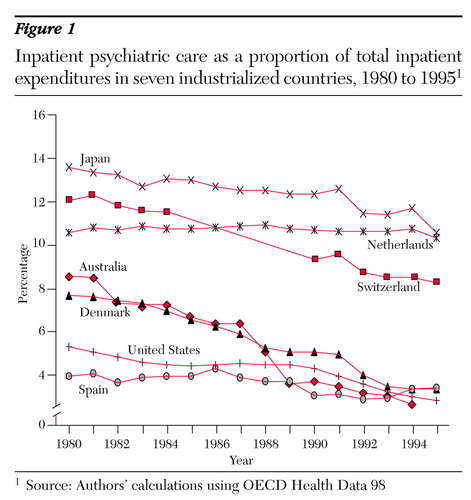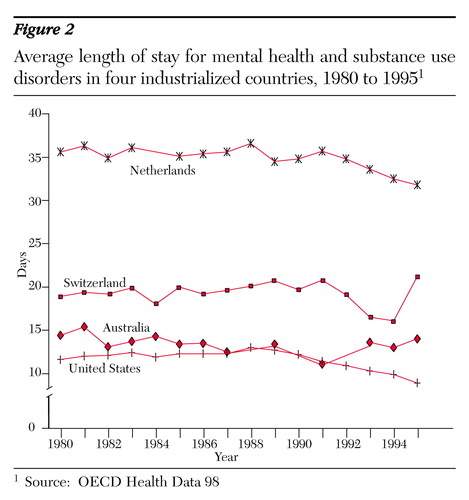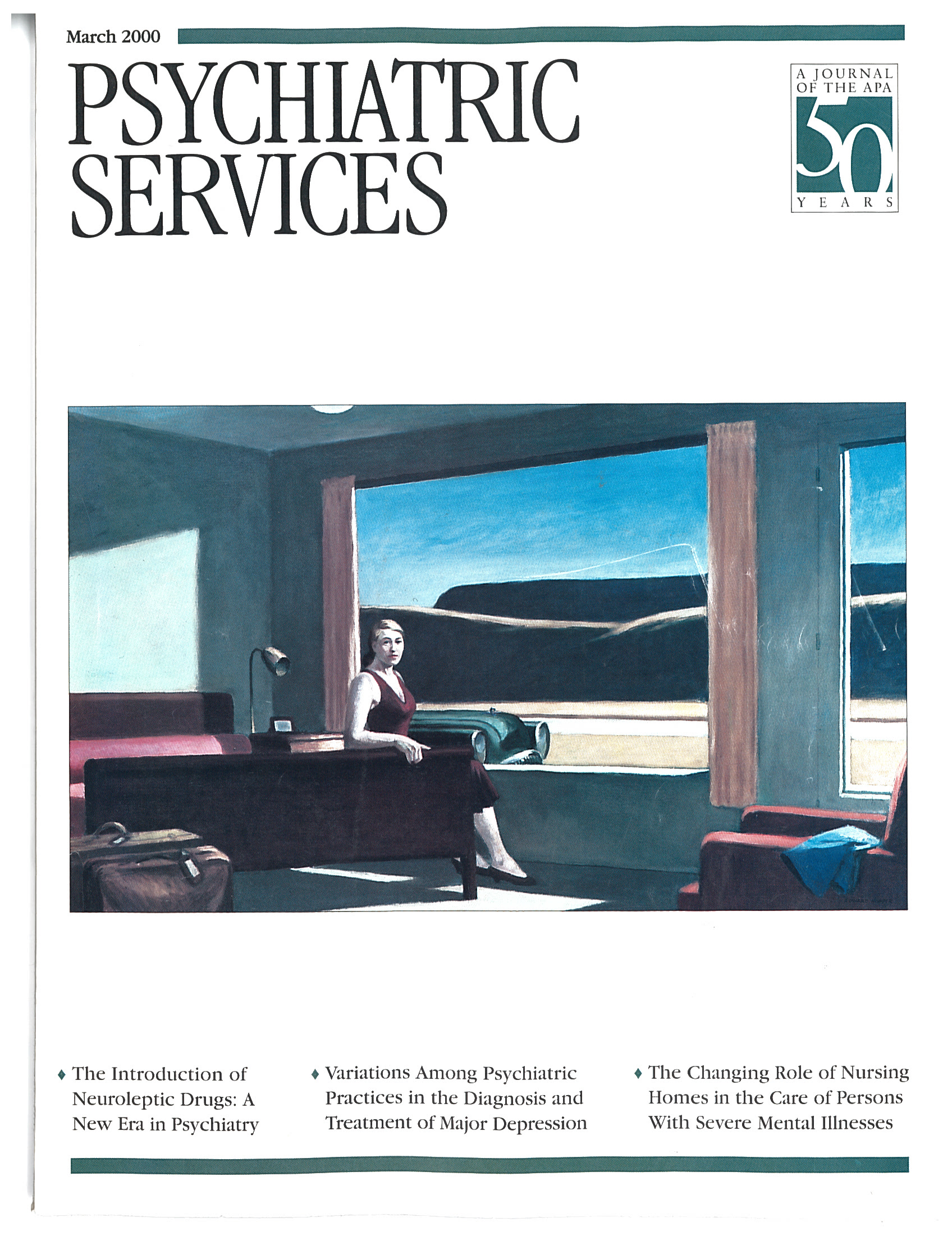Datapoints: Psychiatric Care Expenditures and Length of Stay: Trends in Industrialized Countries
Psychiatrists in the United States have been concerned about the decreasing expenditures and changing patterns of treatment that have accompanied managed care, but how these trends compare with those in other industrialized countries has not been examined. We report here on international trends in two important areas: inpatient psychiatric expenditures as a proportion of total inpatient expenditures, and average length of inpatient psychiatric stays.
This report, based on data from the Organization for Economic Cooperation and Development (OECD), focuses on patterns of mental health care between 1980 and 1995 in all countries for which data were available. Trends were tested nonparametrically using an extension of the Wilcoxon rank-sum test. Because definitions of psychiatric care can differ between countries and data sources may be incomplete, comparisons of absolute values, such as level of expenditures, should be viewed cautiously. However, these factors are less of an issue in comparing trends as long as countries report consistently.
Figure 1 shows a strong downward trend in all countries in inpatient psychiatric expenditures as a proportion of total inpatient expenditures. The trend is significant at the p<.01 level for the pooled data (z=−3.46) and for each country except the Netherlands.
For four of the countries, data were available on average length of stay (in bed-days) for mental health and substance use disorders (categories 290 to 319 in the International Classification of Diseases, Ninth Revision). As Figure 2 shows, no strong trend emerged; Australia and Switzerland had a small increase in length of stay, while the U.S. and the Netherlands had a small decrease.
This report shows that the share of inpatient expenditures for psychiatric disorders has been decreasing in many industrialized countries. In the U.S. this decrease has been attributed to the growth of managed care, but the fact that it is so widespread indicates that it is more likely due to treatment advances, especially medications, that reduce the need for inpatient care.
Acknowledgments
This research was supported by the National Institute of Mental Health and the National Institute on Drug Abuse.
Dr. Sturm and Ms. Bao are affiliated with Rand, 1700 Main Street, Santa Monica, California 90401 (e-mail, [email protected]). Harold Alan Pincus, M.D., and Terri L. Tanielian, M.A., are coeditors of this column.

Figure 1. Inpatient psychiatric care as a proportion of total inpatient expenditures in seven industrialized countries, 1980 to 19951
1 Source: Author's calculations using OECD Health Data 98

Figure 2. Average length of stay for mental health and substance use disorders in four industrialized countries, 1980 to 19951
1 Source: OECD Health Data 98



